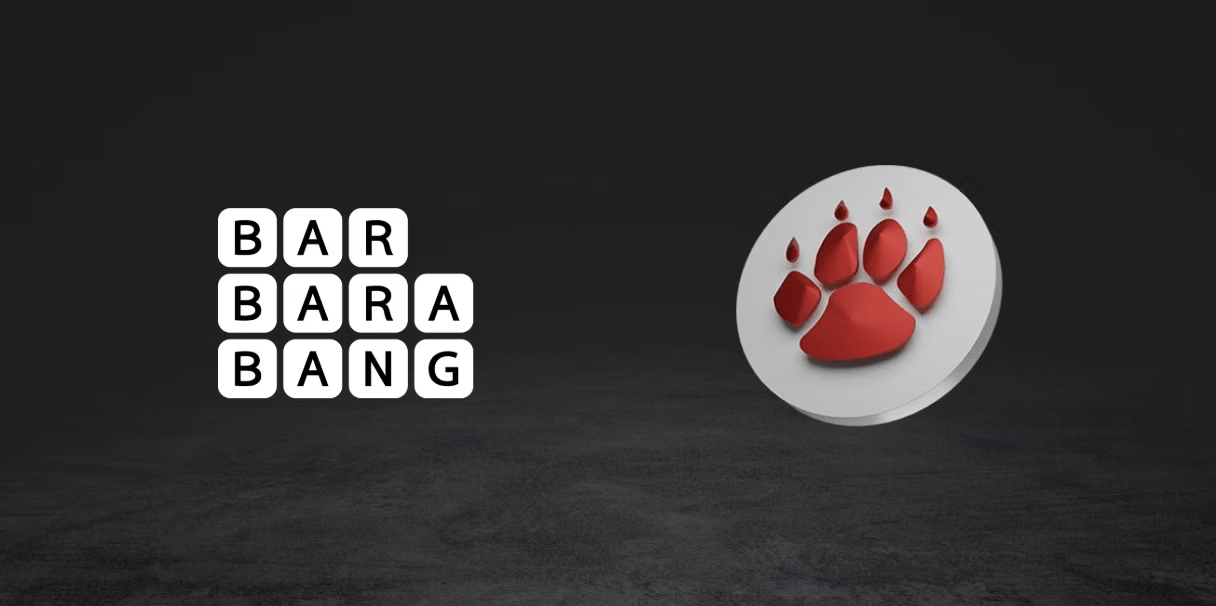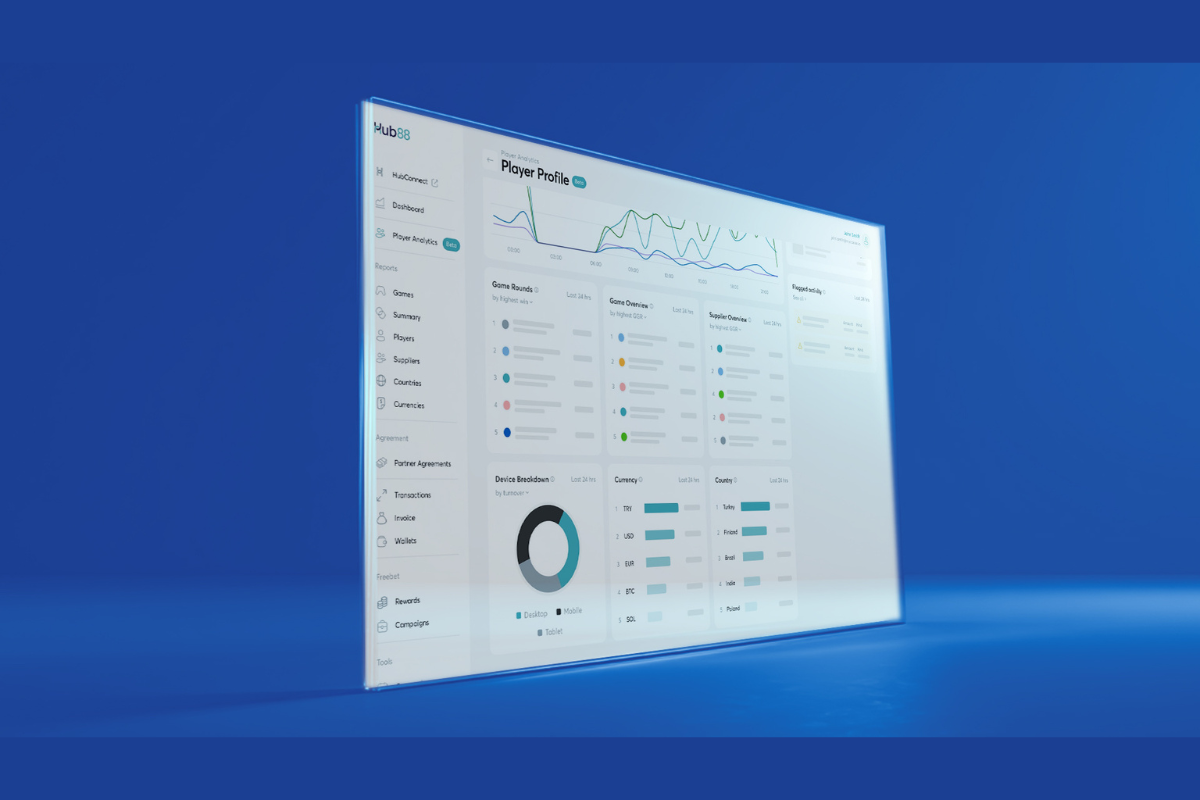Latest News
Blueprint Gaming strikes lucky with Limerick Lightning

Blueprint Gaming’s Limerick Lightning harnesses the power of its Lightning Spins mechanic to enhance its latest slot release.
Utilising the ever-popular Irish theme, complete with charming animation and vivid colours, Limerick Lightning promises an engaging free-spins experience that offers one of four Cashpot prizes for enhanced win potential.
Six or more Lightning Spin symbols in view trigger the feature while respinning the reels for extra scatter symbols sees each one pay a cash prize or one of the Super Cashpots.
If a player manages to land three Bonus symbols on reels 1, 3 and 5, the Free Spins Bonus is triggered. On every spin, three or more consecutive reels will replicate and spin in identical symbols boosting the opportunities to win big.
Limerick Lightning is yet another Blueprint Gaming slot that expands its ever-growing portfolio of high-quality player-centric games that provides fresh, entertaining content to a wide range of demographics.
Jo Purvis, Director of Key Accounts and Marketing UK at Blueprint Gaming, said: “The Irish theme continues to be a firm favourite among players and operators and Limerick Lightning elevates the engagement with the high-volatility Lightning Spins.
“There are plenty of opportunities for wins to strike and for players to feel the electricity in the fabulous free spins round.”
Powered by WPeMatico
CasinoCanada
CasinoCanada announces new partnership with MelBet

CasinoCanada has announced a strategic partnership with MelBet, the international betting and gaming operator, aimed at expanding the brand’s footprint in Canada through dedicated content and brand representation on CasinoCanada’s digital platforms.
Under the agreement, CasinoCanada.com will produce detailed reviews and SEO-focused content tailored to Canadian audiences. The partnership is designed to provide users with clear, transparent information about MelBet’s products and services, while enhancing the operator’s visibility in Canada and driving traffic to the MelBet website.
CasinoCanada is operated by SEOBROTHERS, and Eugene Ravdin, Head of PR, said:
“MelBet operates across multiple international markets and has established a consistent presence in the iGaming industry. Through CasinoCanada, we will focus on delivering clear, data-based content tailored to users in Canada and quality traffic to the MelBet website. This partnership is structured around transparent communication and long-term cooperation.”
MelBet offers daily betting on over 1,000 events across sports and esports, alongside a wide range of slots from more than 120 global providers. The brand has earned multiple accolades, including Best Online Gambling Operator (EVENTUS 2023), Best Affiliate Program (SiGMA Africa Awards 2024), and Live Casino of the Year (AffPapa iGaming Awards 2024).
The operator’s high-profile sports partnerships feature legends such as Andrés Iniesta, Didier Drogba, and Kamaru Usman. In October 2025, MelBet extended its agreement as Juventus’ official betting partner in MENA and Africa, while Spanish La Liga and professional Dota 2 organisation OG Esports further enhance its global portfolio.
Anastasiia Shcherbyna, CMO at MelBet Affiliates, commented:
“Working with CasinoCanada has been smooth and efficient. They understand the specifics of our brand, communicate clearly, and consistently deliver on their commitments. We appreciate their professional approach and see strong potential for long-term cooperation.”
This collaboration positions MelBet for sustained growth in Canada, leveraging CasinoCanada’s content expertise and digital reach to strengthen brand awareness and user engagement.
The post CasinoCanada announces new partnership with MelBet appeared first on Eastern European Gaming | Global iGaming & Tech Intelligence Hub.
Barbara Bang
QTech Games Amplifies Action Through Barbara Bang Integration

Emerging-markets leader enhances its content selection with new games from a rising contender.
QTech Games, the premier game aggregator for emerging markets, has sustained its robust momentum in its pipeline, owing to its recent agreement with promising studio, Barbara Bang, a slots provider recognized for its unique method of game development and a customized approach to discovering localized solutions for various markets.
Incorporating an outstanding portfolio from a highly unique and innovative digital slots supplier further enhances QTech Games’ expanding platform, which is bringing a diverse selection of online games to emerging markets, featuring well-known brands alongside the industry’s most thrilling new providers.
The games offered to QTech partners through this agreement are crypto-friendly and include popular titles and new releases like Sky Rail Riches, Juicy Fruits, Sunshine Rich, and Chieftain Buffalo. Each utilizes distinct maths modeling that alters the volatility spectrum, contributing to an engaging gaming experience.
Philip Doftvik, QTech Games’ CEO, said: “We’re committed to rolling out first-class content that drives revenue for our partners. So, this deal with Barbara Bang extends our impressive sequential pipeline – and we’ve so much more to come in 2026! In today’s marketplace, only high-quality games offering something different separate you from the rabble, so we’re delighted to see how Barbara Bang is fulfilling this demand. Their dedication to data-driven content development, coupled with an acute focus on even the most specific player-centric details, matches up neatly with QTech’s own localisation techniques across emerging markets.
George Dias, Partnership Manager of Barbara Bang, added: “Barbara Bang prides itself on our ever-expanding production line of titles which provide unique and head-turning experiences in an increasingly homogenised space. And we’ve found QTech to be a natural habitat for embracing such content, and delivering it to new audiences. Founded with the goal of bridging the gap between players and gaming platforms, Barbara Bang is now acquiring progressive recognition in the iGaming market, thanks to this deal with the top aggregator QTech Games.
“We’re confident that this partnership will allow us to seamlessly broaden the scope of our slots for fresh audiences across emerging markets. It’s a significant step for Barbara Bang in enlarging our global footprint.”
The post QTech Games Amplifies Action Through Barbara Bang Integration appeared first on Eastern European Gaming | Global iGaming & Tech Intelligence Hub.
Hub88
Hub88 launches Player Analytics to give operators complete view of user behaviour

Hub88 has enhanced its Operator Backoffice suite with the launch of Player Analytics, a tool designed to provide operators with a clear, actionable view of player behaviour across their platform.
Traditionally, understanding player activity has been a manual, time-consuming process, often requiring data to be pulled from multiple systems or spreadsheets. Player Analytics consolidates this information into a single interface, improving efficiency and enabling data-driven decision-making.
The tool offers two main interfaces:
-
Table View: Provides broad segmentation and filtering across the entire player base. Operators can sort players by date, product, country, device, currency, or player ID, and save custom segments for ongoing analysis.
-
Player Profile: Delivers a detailed overview of individual users, including gameplay history, KPIs, supplier activity, devices, currencies, geography, and flagged events — all presented via customizable charts and dashboards.
With advanced insights, operators can detect financial spikes or drops, analyze behavioural trends, forecast churn, and identify potential fraud. Linking supplier IDs directly to player activity also helps operators spot inconsistencies and streamline support processes.
Ollie Castleman, Managing Director of Hub88, commented:
“With high volumes of player activity, modern operators are often overwhelmed by raw data. Player Analytics gives teams the ability to understand player behaviour at both a high level and in granular detail, without relying on manual processes or specialists. Operators deserve clarity, speed and actionable insight, and through this new tool, they can make smarter decisions with confidence.”
The launch of Player Analytics reinforces Hub88’s commitment to providing operators with tools that enhance efficiency, support long-term growth, and maximize platform performance.
The post Hub88 launches Player Analytics to give operators complete view of user behaviour appeared first on Eastern European Gaming | Global iGaming & Tech Intelligence Hub.
-

 Amusnet5 days ago
Amusnet5 days agoWeek 7/2026 slot games releases
-

 Aphrodite’s Kiss5 days ago
Aphrodite’s Kiss5 days agoLove on the Reels: Slotland Introduces “Aphrodite’s Kiss”
-

 Latest News7 days ago
Latest News7 days agoWinSpirit’s UnValentine’s Day: A New Take on February Engagement
-

 Denmark6 days ago
Denmark6 days agoRoyalCasino Partners with ScatterKings for Company’s Danish Launch
-

 Booming Games6 days ago
Booming Games6 days agoTreasure Hunt Revival — Booming Games Launches Gold Gold Gold Hold and Win
-

 Baltics6 days ago
Baltics6 days agoEstonia to Reinstate 5.5% Online Gambling Tax From March 1
-

 Brino Games5 days ago
Brino Games5 days agoQTech Games integrates more creative content from Brino Games
-

 ELA Games6 days ago
ELA Games6 days agoELA Games Unveils Tea Party of Fortune — A Magical Multiplier Experience



















